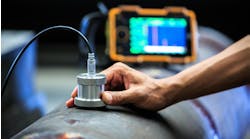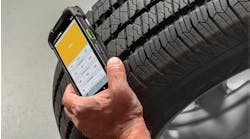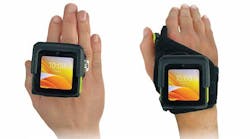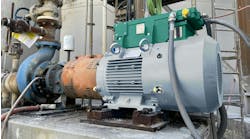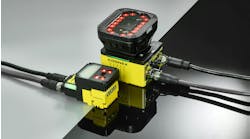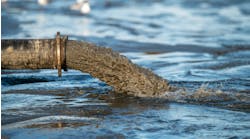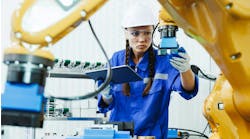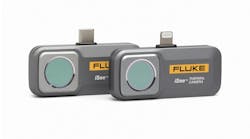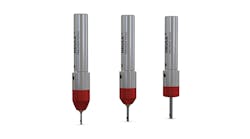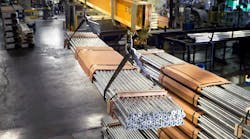Manufacturers have spent decades reassigning aspects of their production programs to overseas operations or contractors, outsourcing critical segments of their supply chain to foreign suppliers. This was “outsourcing”, and the manufacturers’ rationale was to remain competitive according to global cost standards. American-sourced materials and U.S.-based manufacturing, it was argued, resulted in increased costs and a higher-price paid by end-users. However, in recent years, many businesses have taken a closer look at outsourcing's actual costs, and taking steps to restructure their supply chains accordingly, a trend rapidly accelerated by COVID-19.
Anchor Harvey, a precision aluminum forging company, has long understood the hidden costs of supporting overseas manufacturing. From the increased costs of logistics and security, payments for insurance and tariffs, to sub-standard lead times and product quality, offshoring expenses are commonly hidden and often significantly exceed the tantalizingly low up-front sticker prices. The concealed or overlooked cost of offshoring has contributed to the rising number of companies reshoring—the practice of bringing manufacturing operations that had previously moved overseas back to where it was located initially—their manufacturing operations and supply chains.
Reshoring had been increasing even before the pandemic outbreak, as companies moved operations back to the United States at record levels throughout 2018 and 2019. Using a calculation known as Total Cost of Ownership (TCO) and spurred by a global health crisis, in 2020 many companies realized that American manufacturing is safer and more cost-effective than offshoring. In the face of the chaos in global supply chains brought on by COVID-19, businesses moved feverishly to reshore operations — as Anchor Harvey and other U.S. manufacturers moved expeditiously to meet increasing demand.
Risk mitigation. Prior to the pandemic outbreak, Anchor Harvey had taken a proactive approach to insulate its operations from the effects of mandated shutdowns and economic turbulence. We were aided by the fact that only a few months prior, Anchor Harvey had been AS9100 certified — a standard based on organizational, quality, and safety management processes in line with the aerospace industry's stringent requirements. The certification process meant that just a few months before the start of the pandemic, we had taken an exhaustive look at our risk mitigation procedures.
Anchor Harvey secured recognition as an essential business, enabling our operations to continue. Our team moved rapidly to put all federal and state health guidelines in place and canceled all non-essential travel. Company attendance at trade shows, industry meetings, and sales calls were all moved to virtual formats.
Social distancing measures were implemented along with increased cleaning and sanitation procedures throughout our facility. Strategic planning allowed us to procure significant quantities of face masks and hand sanitizer well before both items became scarce commodities, and these were distributed to employees for use both at work and at home.
Messaging and education. As soon as the new health and safety measure had been put in place, Anchor Harvey began an aggressive pivot in our marketing outreach and communication efforts. Using email campaigns, social media posts, podcast discussions, television interviews, and more, we focused our efforts on companies in essential industries that were seeking to reshore and restore their operations.
Promoting Anchor Harvey's local manufacturing and 100% domestic material sourcing, we were able to leverage our century-long expertise to help businesses establish new supply chains and stateside operations.
The pandemic accelerated the pace of reshoring due to heightened instability and fluctuating costs, but it has by no means been the only factor convincing companies to reshore in recent years. Anchor Harvey made certain that our messaging included the numerous other advantages to be gained by reshoring, including improved security, quality, and lead-times.
Offering assistance to other companies, we focused on both the short- and long-term benefits of reshoring their operations. From one-on-one conversations with company leaders to creating long-form content, such as a TCO whitepaper, we drew on our understanding that companies have a multitude of reasons for reshoring besides cost. The dual message of Anchor Harvey's ability to provide immediate relief coupled with the comprehensive range of long-term advantages to be gained by reshoring, including improved security and superior component quality, proved to be an appealing and decisive factor for many companies.
Advanced workflows. Unlike most traditional forging manufacturers, Anchor Harvey was set up particularly well to help businesses reshore their production thanks to our one-piece cellular workflow. Most forgers have operated with a mass (or batch-and-queue) production system, which entails several product components being processed at one stage before moving onto the next step as a group. Despite the widespread recognition that batch-and-queue production tends to drive up inventory, extend lead time, and increase the floor space required for production, many forgers have been slow to implement new processes — a fact that worked to Anchor Harvey's advantage, as well as to the benefit of our partners and customers during the COVID-19 crisis.
The coronavirus pandemic has put floor space at a premium, with new health concerns, social distancing, and enhanced government safety measures having become the new normal. These factors require more floor space for production. In older production systems with irregular workflows, like batch-and-queue processing, providing a safe amount of spacing between employees requires excess travel between workstations, leading to longer lead times and smaller output capacity.
Cellular manufacturing, the process used at Anchor Harvey, is distinct from the batch-and-queue process in that it is both more efficient for production, but also in its use of floor space. In cellular manufacturing, work cells facilitate the production process as components move smoothly, transitioning from workcell-to-workcell. The cellular processes’ uninterrupted movement of parts from one station to the next reduces the necessary floor space by nearly 50%. This allowed Anchor Harvey to implement effective distancing between employees without suffering a loss in production capacity.
Anchor Harvey's one-piece cellular workflow, along with our regular investments in new equipment, technology, and monitoring systems, mean that we can maintain a healthy and safe shop floor and provide unmatched lead time, speed-to-market, and budget efficiencies, all of which are essential factors for any company looking to reshore and only made more so at the height of an ongoing pandemic. By incorporating advanced technologies and improved, modern workflows, Anchor Harvey's systematized plant operation ensured we could back up our messaging with our actions. As such, we have continued producing high-quality aluminum forged components for essential American industries and extend aid to actively reshoring companies.
Data and quality assurance. Highlighting our modern workflow and new technology, such as advanced monitor systems that allow us to control every step of the operation and ensure part consistency from 1 to over 1,000,000, Anchor Harvey has been able to contrast the high quality and precision of our components against parts sourced overseas. Commonly known to operate with minimal or questionable quality-assurance practices, offshore manufacturers have developed a reputation for shipping products that commonly contain substantial inconsistencies, requiring reworks, reorders, or recalls and driving up costs. The use of statistics, such as data showing that outsourced components have a fault rate that can be as much as seven times higher than their domestic equivalents, proved to be compelling for many companies.
Anchor Harvey's AS9100 and ISO 9001 certifications, among several others, also were used to highlight our commitment to product quality. A century of expertise, combined with a long list of accreditations, accolades, and the use of data helped demonstrate the cost savings and superior components that companies could achieve by reshoring with Anchor Harvey. Being able to provide assurances about lead-times and quality, particularly at the height of a worldwide health crisis, proved to be a remarkably effective means of convincing companies to bring the manufacturing operations back to the United States.
Results. Anchor Harvey has survived, of course, but it managed also to grow in the midst of a global pandemic by using targeted communications centered around reshoring. Our success is rooted in our ability to remain proactive without resting on our accomplishments. By studying industry trends, integrating advanced technologies and modern workflows, and communicating with companies honestly and openly, Anchor Harvey seized an opportunity while so many businesses remain hamstrung by chaos and uncertainty. Kerry Kubatzke is the lead sales manager got Anchor Harvey, an aluminum forger, and has over 35 years of experience in engineering and precision forge manufacturing.
